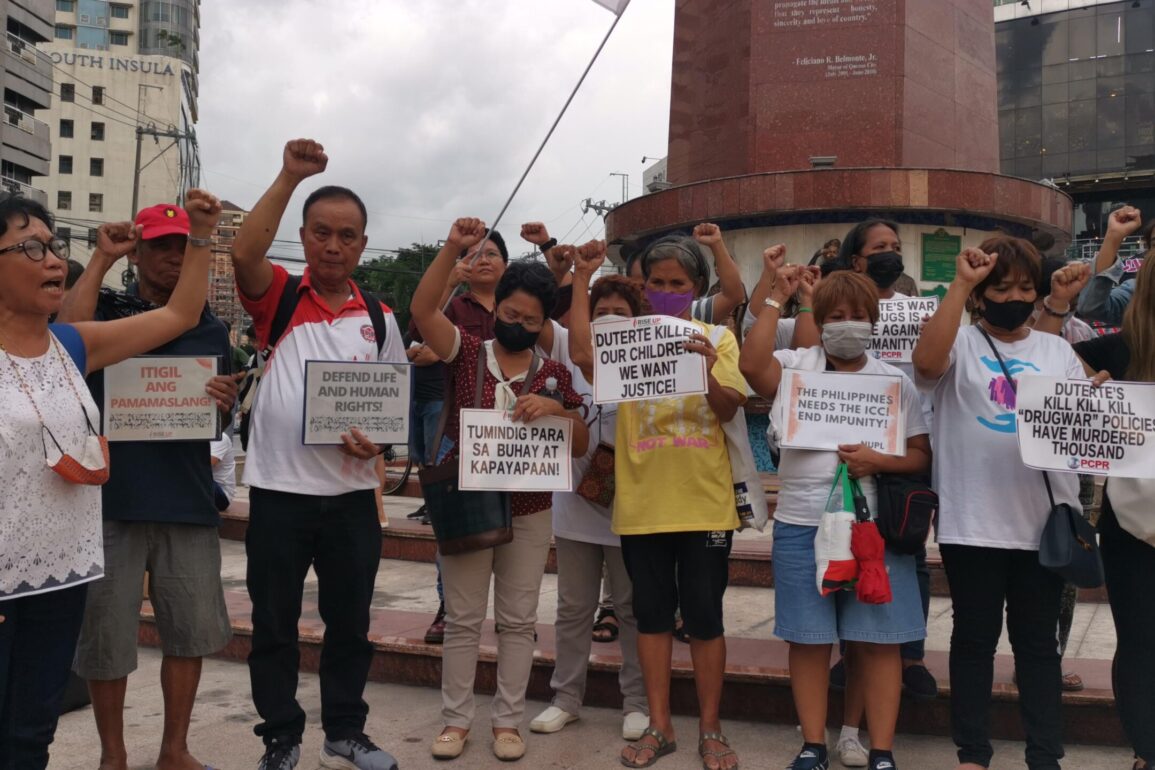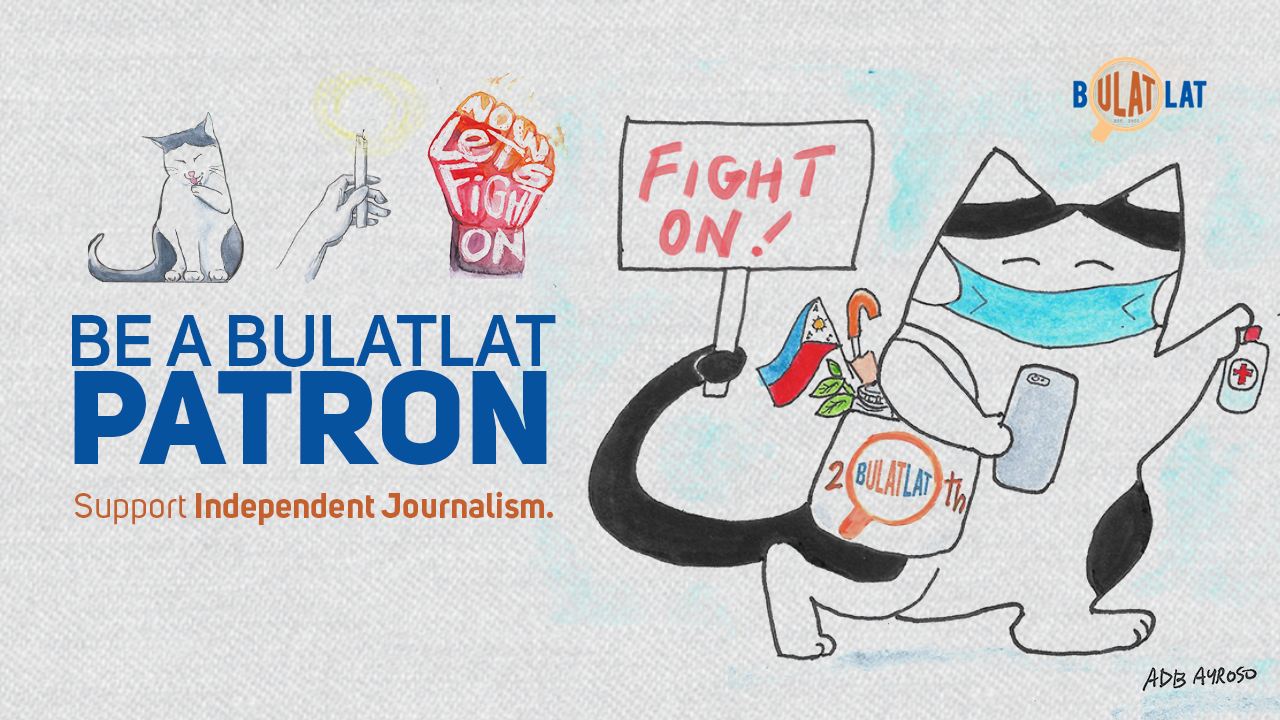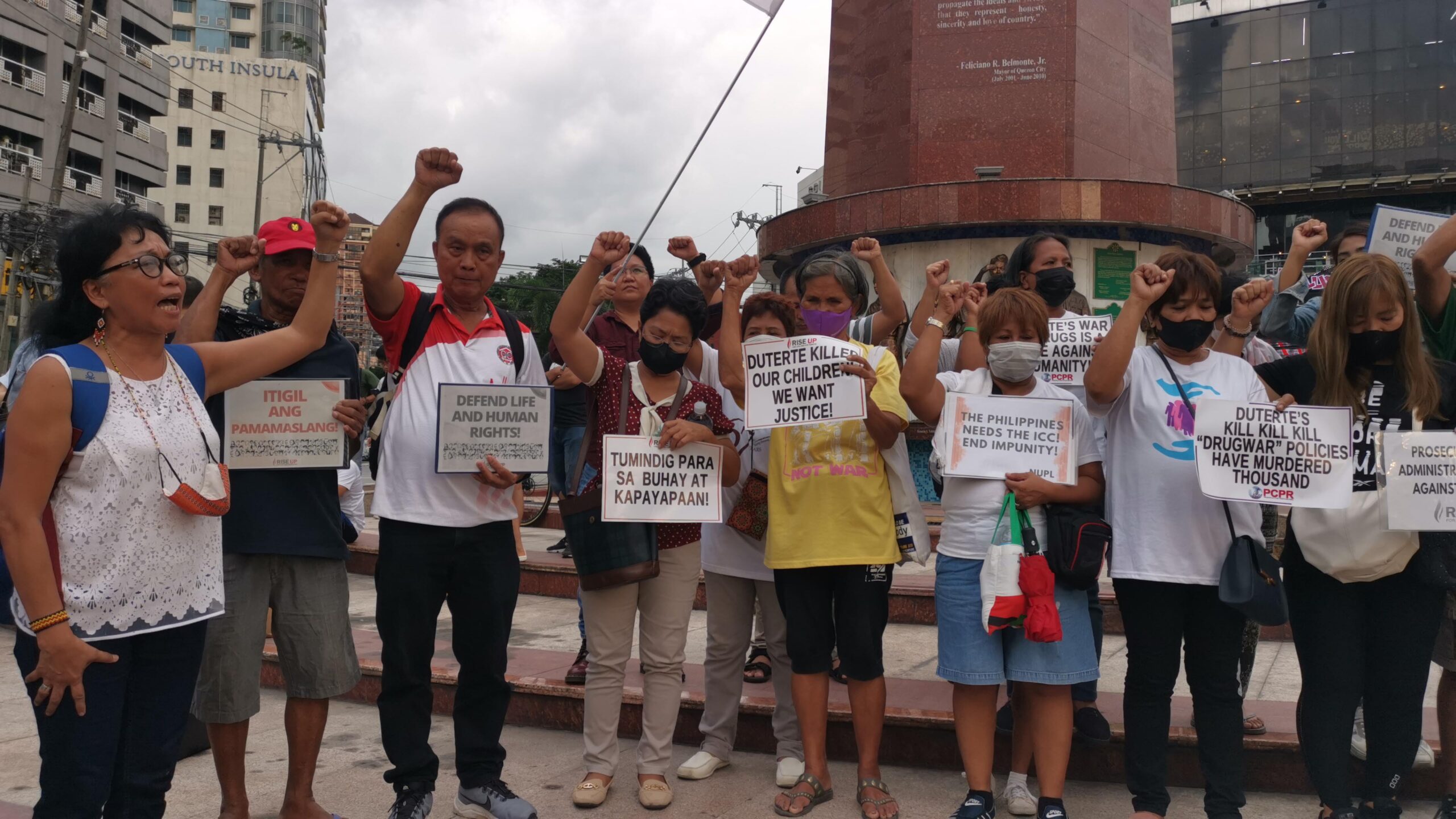
By ANNE MARXZE D. UMIL
Bulatlat.com
MANILA – For grieving families whose loved ones were killed during former President Rodrigo Duterte’s so-called war on drugs, they welcome the International Criminal Court (ICC)’s decision to side with the truth.
On July 18, the ICC Appeals Chamber authorized the ICC prosecutor to resume the investigation on drug-related killings from November 1, 2011 to March 16, 2019. This, amid the Philippine government’s appeal to defer investigation, citing withdrawal from the Rome Statute in 2018 and the claim that the judicial system in the Philippines is working for the families’ victims.
“The families win today!” human rights lawyer Neri Colmenares said in a watch party organized by Rise Up for Life and for Rights in Quezon City.
Meanwhile, mothers and wives who lost their sons and husbands, slain in Duterte’s anti-illegal drugs campaign, continue to weep. This time, however, they shed tears not in agony and grief.
“Our work in the communities continues. We will seek (for) more families to speak about their case,” Jane Lee of Rise Up for Life and for Rights said. Her husband was killed by riding-in-tandem men in March 2017 in Bagong Silang, Caloocan.
Read: Kin of victims of extrajudicial killings fight for justice
Read: #UndoingDuterte| Five years of bloody drug war, kin of victims fight for justice
Rejecting Philippine government’s appeal
Majority of the ICC Appeals Chamber rejected all of the Philippine government’s grounds for appeal.
The first ground is that the ICC has no jurisdiction over the Philippines as it has withdrawn from the Rome Statute. The ICC said the Philippine government’s argument is misplaced, “as they misappreciate the Court’s complementarity system.”
“The Court’s jurisdiction and mandate is exercised in accordance with the provisions of the Statute, an international treaty to which the Philippines was a party at the time of the alleged crimes for which the investigation was authorized. By ratifying the Statute, the Philippines explicitly accepted the jurisdiction of the Court, within the limits mandated by the treaty, and pursuant to how the system of complementarity functions,” the ICC Appeals Chamber said in its decision.
Based on Article 18(2) of the Statute, the Appeals Chamber said that it may “authorize the Prosecution to resume an investigation, notwithstanding a State’s request to defer the investigation.”
“These provisions and the ensuing obligations remain applicable, notwithstanding the Philippines withdrawal from the Statute,” the decision read.
According to the ICC Appeals Chamber, the Philippines’ withdrawal from the Rome Statute became effective before the ICC Prosecutor requested authorization to resume his investigation.
Read: Rights groups welcome resumption of ICC probe on the Philippines
Read: Kin of drug war victims: ICC probe will ferret out truth, give justice to our loved ones
The majority of the Appeals Chamber also found that the Philippine government failed to demonstrate in its appeal that the “Pre-Trial Chamber erred in placing the onus on the Philippines to show that investigations or prosecutions are taking place or have taken place.”
According to the decision, the Philippine government is only alleging a fact by informing the ICC that the Philippines is investigating its nationals or others within its jurisdiction with respect to criminal acts which may constitute crimes under article 5 of the Rome Statute.
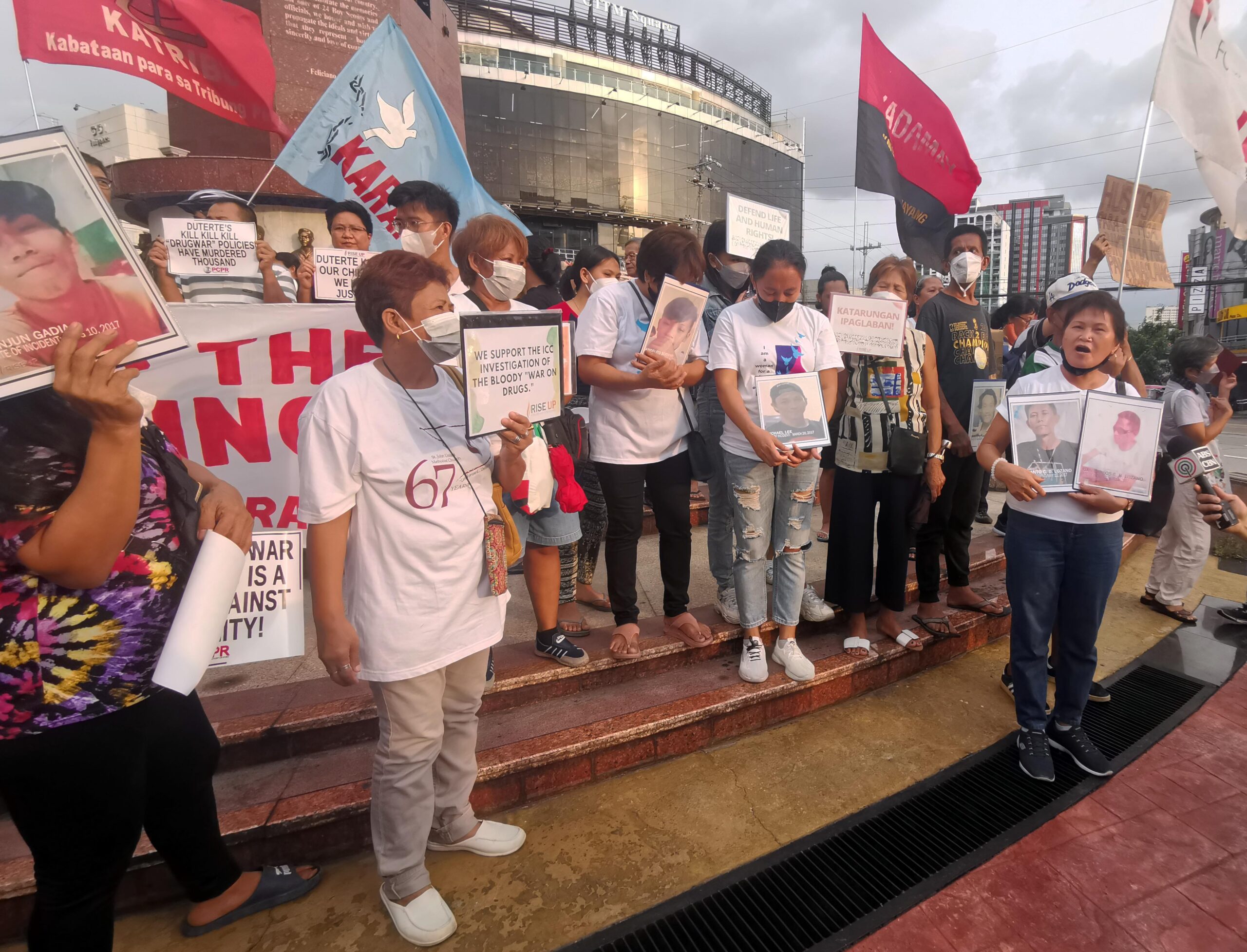
The ICC Appeals Chamber said that Rule 53 of the Rules requires the State seeking a deferral to “provide information concerning its investigation [as the] Majority is of the view that the Court’s legal texts thus place the burden of proof in Article 18 proceedings on the party which seeks to establish the existence of a fact.”
“The Majority also found that the Philippines failed to show instances in which the Pre-Trial Chamber allegedly applied the wrong admissibility threshold or standard and that, given its conclusion on the Philippines’ inactivity with regard to the relevant crimes, it was correct for the Pre-Trial Chamber not to consider the issue of the Philippines’ willingness and ability to investigate,” the ICC Appeals Chamber stressed.
The ICC Appeals Chamber added “that for the purpose of admissibility challenges under Article 18 of the Statute, a State is required to demonstrate an advancing process of domestic investigations and prosecutions of the same groups or categories of individuals in relation to the relevant criminality, including the patterns and forms of criminality, within a situation. The domestic criminal proceedings must sufficiently mirror the scope of the Prosecutor’s intended investigation.”
On September 15, 2021, the Pre-Trial Chamber authorized ICC Prosecutor Karim Khan to proceed with its investigation of the possible crime against humanity committed by Duterte. The Philippines, in November 2021, requested that the investigation be deferred. The ICC Pre-Trial Chamber I granted on January 26 the ICC Prosecutor’s request to resume the probe in the Philippines. The Philippines has once again filed a notice of appeal in February but this was rejected by the Appeals Chamber in March.
Tears of joy
From the watch-party, the families marched to the Boy Scout Circle in Tomas Morato to express their gratitude to all those who helped them in their fight for justice.
“This is it! We thank all those who supported us – the lawyers, church people, organizations and the media covering and following our issue,” Llore Pasco said in Filipino. Pasco lost her two sons in the bloody war on drugs.
“I was nervous (before the airing of the decision) because what if the decision is not in our favor? But now the investigation will finally push through,” Pasco said. She added that many families, mostly scared to speak, are now ready to seek justice for their loved ones.
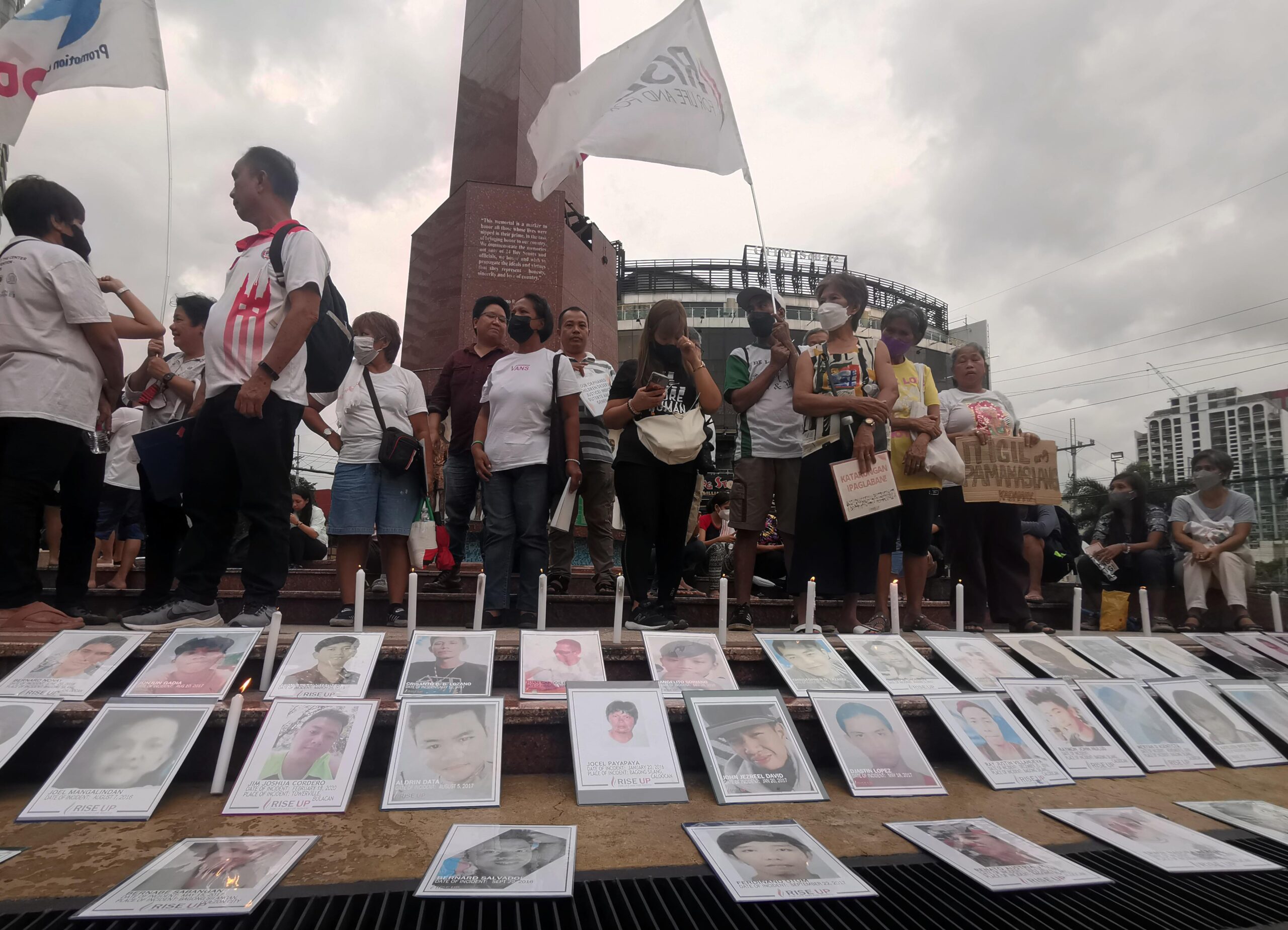
Mary Ann Domingo, who lost her husband and son, encouraged all families of the victims to speak up.“We should not be afraid. Even if we are at the borders of our society we still have our rights,” Domingo said. She added that during the Duterte regime, killings happened almost every day in her area in Caloocan City.
Domingo’s house was raided by the police one night in September 2016. Her son and husband were neither drug users nor the real targets of the police. “I cried when the lawyers explained the decision. I remembered my son and my husband. I was really happy.”
Kristina Conti, secretary general of the National Union of Peoples’ Lawyer in the National Capital Region, said that the families and their legal counsels will cooperate fully with the ICC. She said that they will begin preparations for the ICC investigation.
Supporters also welcomed the ICC Appeals Chamber’s decision. A statement from Center Law said, “The ICC decision is a concrete answer to the prayers of the victims’ communities who are still seeking justice for their murdered family members under Duterte’s war on drugs.”
“CenterLaw trusts the judicial mechanism of the ICC and is confident that perpetrators of the War on Drugs will be tried for their actions,” the lawyers’ group added.
Karapatan secretary general Cristina Palabay, meanwhile, commended the families for their courage. “You are an inspiration to the families whose loved ones were lost due to war on drugs,” she said during the program.
For Lee, there is no more going back in their quest for justice. “For me, whether or not the ICC rules in our favor, I will still continue in our call for justice. I have lost my husband, his life will never be returned. I just want to show my children that despite everything, I am here, I am fighting for justice.” (RTS,DAA) ![]()
This post was originally published on this site be sure to check out more of their content.




